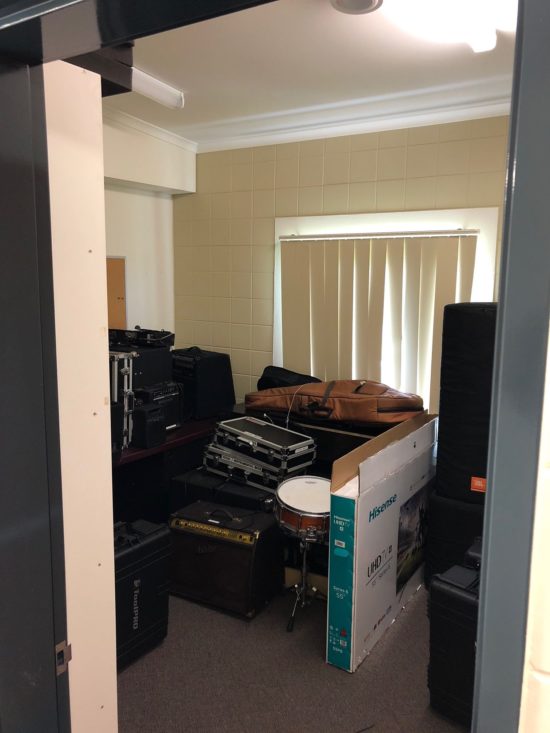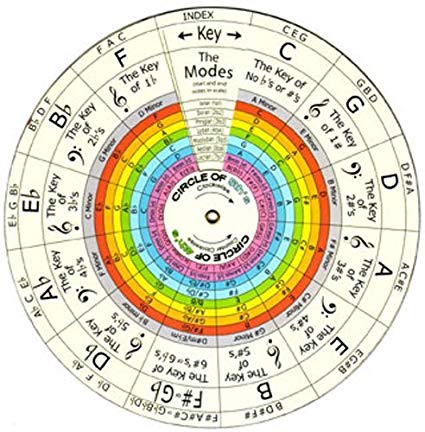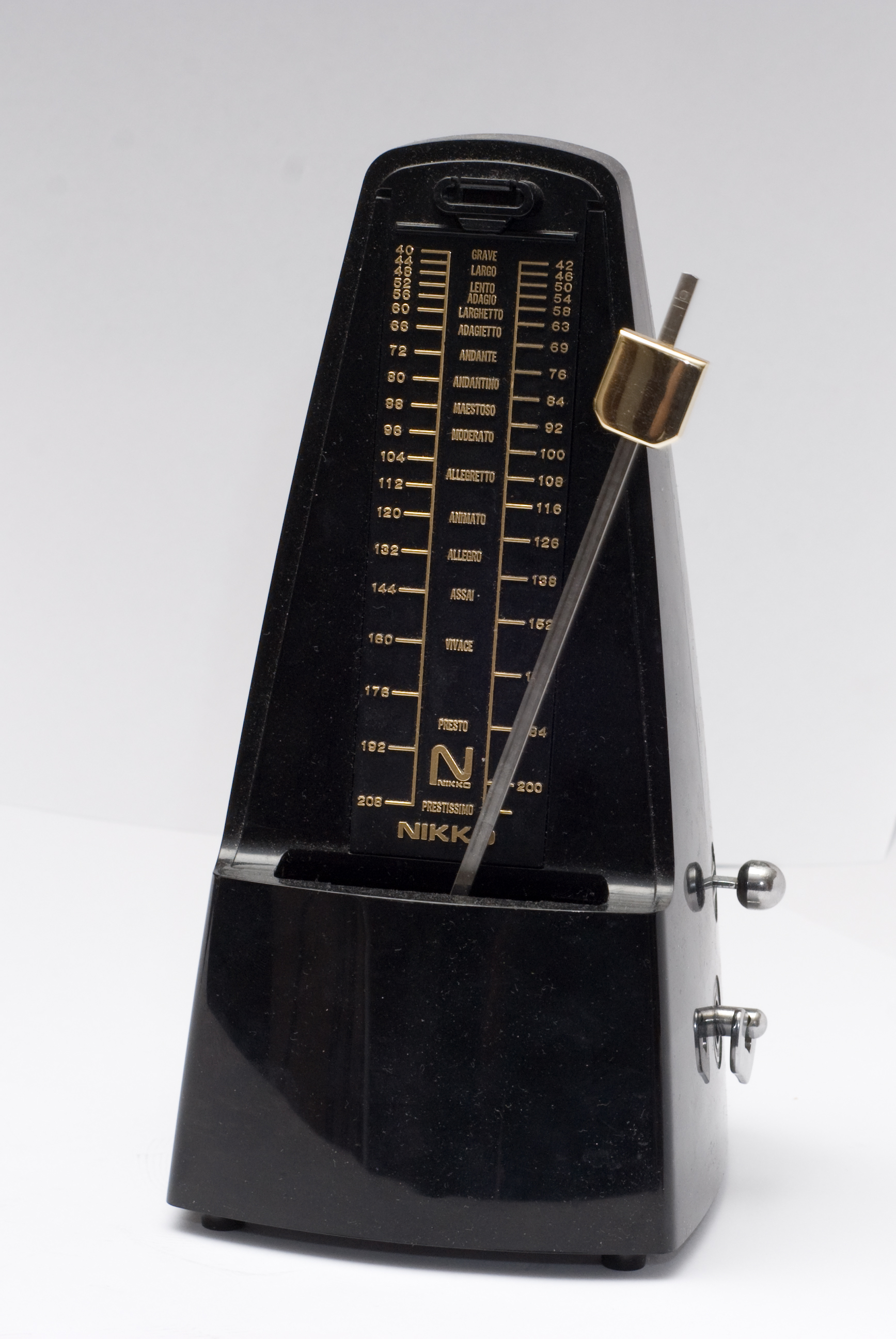“Why don’t MY bass lines
sound as good as the ones on my favorite records?”

What makes these bass players sound so good?
Tell me if you’ve ever gone through this:
You listen to a great song with an amazing bass line that just feels incredible.
It might be a James Jamerson line, something by John Deacon, Flea, Carol Kaye or any other great bass player.
Whatever it is, you just have to play it for yourself, capture that feeling on the recording and recreate it.
So, bursting with enthusiasm, you go to the internet, look up some tabs or a YouTube tutorial - maybe you even figure it out by ear.
You find all the right notes, practice all the parts, and brimming with excitement, you go to play the whole song.
But when you do, something seems...off.
Like something is missing.
You know you’re not playing any wrong notes, but when you play them, that feeling - that magic that was on the recording - simply vanishes like smoke.
That bright star of enthusiasm starts to fade a little, but you’re still determined to get it right. So you practice hard to really nail every single note in the song.
But no matter how much you try to play it ‘better’, you never seem to get any closer to recording quality. It kind of seems like you’re playing a ‘diet’ version of the song.
It’s the song…
But not how it should be…
The more you try to force your playing to be better, the more your excitement fades away; little by little.
If it’s really bad, you may even give up on playing it entirely. You’d probably still enjoy listening to the song, but the thought of playing it leaves you feeling defeated.
How Do You Get ‘In The Pocket’ And Stay There Every Time?
Sometimes, there’s a moment in your playing when all the stars align and everything just works. You know it when it happens - everything feels electric.
In short, you’re ‘in the pocket’.
If you’re in the pocket, just playing by yourself or with a recording, you’ll notice yourself breezing through songs without a care in the world.
You might even get to the end of the song barely realizing that you’ve played the whole thing already.
Hours will go by, but they feel like minutes. But playing feels so good, so you just keep on going, so you can hold onto that feeling.
If you’re playing with other people, you can see the effect being in the pocket has on them. They’ll start moving a little bit more. A drummer might even give you a knowing look or even big old grin.
If it feels really good, they may even yell out. “Damn! That’s tight!”
If you’re playing for an audience, you’ll see how being in the pocket changes them too. A bored, uninterested crowd, will suddenly come to life.
They’ll actually start to pay attention to the music instead of looking down at their drinks or continuing their conversations.
If you’re playing the right kind of music, they may even flood the dance floor, ready to move - and all because of what you’re doing on your bass.
This is the power of finding that pocket and getting in there.
The First Time I Felt Like A ‘Legit’ Bass Player
I played bass for years before I actually felt like I was a ‘real’ bassist, but I remember the exact moment when it happened. It wasn’t learning my first song or playing my first gig that made me feel like this. It was something much simpler.
It was the first time I really ‘locked in’ with a drummer. I remember it very clearly - it was with a friend of mine named Paul.
We were in a band (the two of us, plus a pianist, singer and a horn player) and we had set up in this old office that had horrible brown carpet that smelled as old as it looked.

This is the actual office this happened in. Now, it's more or a storeroom I guess...
We were running through some songs and they sounded...OK.
They weren’t groundbreaking, but we got through them.
A few songs into the rehearsal, someone suggested we run through Autumn Leaves - a song we had played dozens of times before. Everyone got their charts ready and and Paul counted off.
"1 - 2 - 1 - 2 - 3 - 4"
I wasn’t expecting great things - I thought we’d just play it the way we always do. But from the very first note we played, there was something different, something special and magical about how it sounded.
Instead of the drums and bass doing their separate thing, we played like one instrument.
There was this incredible feeling of unity and movement in the song. The way we were playing was making everything sound so freaking good.
I had never felt this way playing music before.
I couldn’t do anything but keep playing with a massive goofy grin on my face. And when I looked around at everyone else, they had the same goofy grin that I did!
You know that feeling of eating an incredible meal - and you don’t want it to end? That’s exactly how I felt about this song.
It felt so good, and I wanted to hang onto that feeling for as long as I possibly could.
Even if you’re just playing along with a recording, you can still experience the exact same thing - like you never want the song to finish.
When the song did actually end, I looked at Paul and he looked at me. I asked,
“Did you feel that?”
I thought maybe I was imagining things - maybe this feeling was all in my head.
But Paul immediately said:
"Holy sh*t!!! That felt really good!"
Everyone agreed that what we just played felt better than anything we’d ever done before. And not just a little bit better - it felt infinitely more ‘locked in’, settled, and more full.
It took the whole band to the next level.
We had stumbled on to something that we knew about intellectually. We’d heard it on recordings, and heard other people talk about it, but we had never truly experienced it for ourselves.
Groove.
That first time I fell into the groove, it was a complete fluke - an accident. I had no idea what was different about my playing that made it feel that good.
And because I had no idea, the next time we tried to recreate that same magic, we just couldn’t do it. The harder we tried, the worse it sounded. It was like chasing a unicorn.
So things went back to how they were before, which was completely demoralizing.
It was like I had seen the world in color for the first time, and then immediately went back to black and white. I knew I had the potential to sound so much better - I had done it before! I just didn’t know how to get back there.
As the months went by, and I had my second brush with groove, where everything felt magical again! Then it happened a third time...a fourth time. I started experiencing that ‘in the pocket’ feeling more and more.
Again though, they were all total flukes, but I was determined to figure this thing out, so I made a plan.
When the music grooved really hard, I would listen intently to what I was doing and what everyone else was doing as well. I became obsessed with trying to make every bass line I played feel as good as that first time I stumbled into a good groove. I’d ask myself:
These ‘accidental’ grooves would feel incredible, but they only seemed to happen once in a blue moon.
The more questions I asked, the more people I played with, and the more experience I got, the more I realized:
Without Groove, Nothing Else Matters
When it comes to actually making music with others, groove is THE most important thing.
It rules supreme.
Think about all of your favorite bass players:

These bassists all play different styles of music.
They don't even all play the same kinds of basses!
But what’s the one thing they all have in common?
It’s groove.
They’re always in the pocket. They are powerhouses of groove. They’re masters of how the music should feel. That’s what makes them great bass players and that’s why they’re always in such high demand.
If you can consistently and reliably get into the pocket of the music you’re playing, you can sound just like your favorite bass players on your favorite recordings.
If you can groove well, not only will everything you play sound amazing, but other musicians will be thrilled to play with you. In fact, if you’ve got solid groove, they’ll fall over themselves to get a chance to make music with you!
Who wouldn’t want to play with someone who could take a bored uninterested audience and make them want to dance?
Even if you’re just playing by yourself, a strong groove will make everything sound and feel so much better, and you’ll end up having so much more fun.
If you haven’t got your groove together though, you’ll face a much different scenario. Instead of people clamoring to play with you, you’ll likely struggle to find anyone to play with.
Even worse, when they do get the opportunity to play with other people, the chances of you rushing or dragging through songs, or coming in early or late are really high, so you’ll earn the sour looks of everyone in the band - especially the drummer.
And what happens afterwards? If your groove isn’t good, you probably won’t get called to play again - even if your technique is solid and you know a lot of their theory and a ton of songs.
People just don’t want to play with a bass player who can’t get in the pocket and stay in the pocket. Groove is simply that important.
And if you’re just playing by yourself, but haven’t got your groove together, nothing will feel like it should, you’ll find yourself getting more and more discouraged until you leave your bass to collect dust for months on end.
It doesn’t matter if you have perfect technique. It doesn’t matter if you know tons of songs, all of your theory, have the best gear and a great attitude.
Without solid groove, nothing else matters.
If Groove Is So Important, Why Isn’t It Talked About More?
If you look at tons of bass books, websites or YouTube tutorials, you’ll notice a strange phenomenon.
The majority of resources are all about notes. Which notes are in different scales, which notes work well with different chords…
Notes, notes, notes…

Most resources focus on the notes, and ignore the groove...
Don’t get me wrong - notes are important, but what ends up happening is bass players end up with decent knowledge of scales, arpeggios, modes, chords…
You may know a lot about notes yourself, but if someone asked you what beat of the bar you start a certain bass line on, would you be able to tell them?
If someone asked whether you naturally ‘push’ the beat or ‘lay back’ in the beat, would you know the answer?
And more importantly, would you know how to control your own time feel?
If you were dealing with a runaway drummer who was playing everything way too fast, would you know how to play in a way that reigns them in? Or know how to kick a lazy drummer into gear with nothing but your own groove?
For a lot of bass players, the answer is,
“...Uh...I haven’t really thought about any of that stuff.”
And guess what - none of this is your fault! Let me explain:
If grooving is your #1 job as a bass player, why aren’t there more resources about it?
In short, groove is difficult to teach. I know from more than a decade of experience teaching bass players privately, at universities and online.
I’d have students come to me playing all the right notes and knowing all their theory, but their playing just didn’t really feel very good.
Again - it wasn’t their fault. Pretty much all the resources they had been exposed to either glossed over groove or skipped it entirely.
It took me a long time to figure out exactly what these students were missing from their playing and how to teach them to groove like the recordings they were trying to emulate.
What I found is that there are far fewer ‘right answers’ when it comes to groove than when it comes to notes.
If you play a ‘wrong’ note, it will be a wrong note for a very defined reason. Perhaps you played a major 3rd over a minor chord and the frequencies of those notes are incompatible.
But when something doesn’t ‘feel’ right, it almost always comes down to invisible concepts that most bass players overlook.
A lot of players rarely think about how exactly they improved their groove - they just did it intuitively over time. Then, if they get asked how they do it, they usually can’t give a very solid, concrete answer.
As a result, there are a ton of myths, ‘secrets’ and misconceptions about groove.
Groove Myth #1 - “You Either Have Rhythm Or You Don’t”
This myth can really hurt you.
Why?
Because it forces you to believe that rhythm is something that can’t be learned, so why even try?
But if you never focus on learning rhythm, then your playing will never sound or feel like your favorite recordings.
Rhythm is an essential part of your groove, but it’s easier to say ‘I guess I just don’t have rhythm’ than actually take the time and effort to systematically and methodically take your rhythm to the next level.
The idea that rhythm and groove can’t be learned is a fantasy. Back in 2012, I was living in Kentucky and I had an in-person student come for lessons with me who swore up and down that he ‘didn’t have rhythm’.
All he wanted to learn was the bass line to Another One Bites The Dust, but he was struggling with the timing. He’d tried to play it himself, found it difficult, so he thought he just ‘didn’t have it’.
But after a few weeks of lessons focusing on the right things, he could put on the recording and confidently play that line with impeccable timing and it felt great!
The truth is, once you know how to break it down into its parts, groove is absolutely something that you can learn.
Think about it… Did you come out of the womb being able to groove? Did you inherently have the knowledge of which rhythms sounded like what and how to use them?
I know I didn’t, and I’m guessing you didn’t either.
Nobody does!
But that doesn’t mean you can’t learn these things.
Yes - some people will definitely find this easier than others, but rhythm and learning to play in time is a skill, just like any other.
The secret to learning how to groove doesn’t come down to ‘natural talent’ or anything like that. The secret is plain old hard work. If you work on the right things in the right way, you can take your groove to the next level.
Groove Myth #2: “What does locking in with the drummer even mean?!?”

A lot of the time when people try to teach groove, they fall back on these vague phrases like, “Make sure you lock in with the drummer”
But what the hell does this even mean? Exactly what part of the drum kit should you be ‘locking in’ to?
Does ‘locking in’ mean only ever playing the same rhythm as the bass drum?
What if they’re not playing the bass drum?
Do you focus on another part of the drum kit? And if so, which one?
And what if the drummer isn’t playing a consistent rhythm? How are you supposed to ‘lock in’ if that happens?
And what if other instruments are playing something that needs to be doubled? Are you supposed to abandon the drums and lock in with something else?
What if there are no drums?
ARGH!!!
What sounds like a reassuring piece of advice quickly falls apart when you start to think about it.
It’s not that the piece of advice is bad - it’s just that hardly anybody goes beyond these kinds of cliches to really unpack them and give some definitive answers.
Part of the reason is that a lot of these questions actually don’t have a single, definitive answer!
But when you understand how groove works, you can automatically adjust to any musician and make whatever they play feel as good as possible.
Groove Myth #3: “Metronomes will help you groove”
If you ask most musicians how to improve your groove, the a lot of them will likely say something like, ‘Practice everything with a metronome’.
Again, this isn’t bad advice. Metronomes can be unbelievably useful - if you know what you’re doing with them.
But even then, you’ll likely run into a two problems.
First of all, metronomes aren’t particularly fun or musical - they can be downright boring. An incessant ‘ticking’ that you can never get rid of? Ugh...gross!
I don’t know about you, but I’ve never heard a metronome clicking away and wanted to dance to it OR heard a great drummer that sounded like a metronome.
Metronomes are good for learning to play without speeding up or slowing down too much, but groove is about much more than being a relentless tempo robot.
In fact, you’ll notice that a ton of great recordings aren’t ‘metronomic’ at all - the tempo may slip a little bit or even speed up.
If you listen to Herbie Hancock’s Chameleon you’ll notice it’s faster at the end than at the beginning. Stevie Ray Vaughan’s Texas Flood ends at a slower tempo than what it starts at.
But do you listen to these musicians and think it feels ‘amateurish‘ because it’s not the exact same tempo all the way through? Hell no! Groove is intentional and doesn’t come from being a slave to the metronome.
Secondly, how are you actually supposed to use a metronome? Just have it relentlessly ticking away at you on every beat until you get so annoyed and frustrated that you turn it off and abandon it in a random office drawer somewhere?
It’s no wonder that a lot of bass players simply don’t ever play with a metronome or conveniently ‘forget’ to do it.
The Only Two Things You Need To Groove Hard
Yes, groove can be hard to learn because of all these myths and misconceptions and - that’s the bad news.
The good news is, you CAN groove like the bass players on your favorite recordings.
You CAN get your playing to sound and feel amazing consistently - instead of once in a blue moon.
You CAN become the bass player that other people are desperate to play with, even if you haven’t played with a band before.
You CAN learn to play perfectly in sync with any drummer, even if rhythm doesn’t come ‘naturally’ to you.
How?
By tackling the 2 most important elements of your groove, but it took me a long time to figure these out.
Like I said earlier, when I first started teaching at a university, I had a lot of students who sounded OK - they knew all the right notes, but their playing lacked that really solid groove.
Like a lot of bass players, I had developed my own groove mostly through intuition, so I didn’t really know exactly how to teach it to others, but I had students, so I made it my mission to figure it out.
So like a mad scientist, I tested a whole bunch of ideas and approaches with these students. I’d make them play with recordings, I’d make them sing what they were playing, I’d make them change their technique, I’d make them play with metronomes…
I tried a ton of stuff, and to be honest, a lot of it didn’t really work. But after a while, a pattern emerged. When my students focused on 2 things, they almost always sounded better.
There were just two elements of groove that actually matter; two things that made a difference to my students playing. They were:
Once I narrowed it down to these 2 things and got all my students to focus on them, something amazing happened. Firstly, their practice became so much more focused. They were either working on their ability to play with good timing or making the music feel good.
Secondly, they started sounding better and better. At first, it was just when they were playing by themselves in lessons, but then the bands they were playing in started sounding better too.
This stuff was actually working! They were having more fun and sounding better than they had ever sounded before - and that was by just focusing on these 2 things.
Fast forward to a few years ago, I wanted to see if the things I had been teaching in-person would translate online, so I decided to do some more testing.
I invited a handful of students to try out an online course all about groove, and we focused exclusively on those two things.
The idea was to test the waters and make sure that the material I was teaching actually made a difference to their playing.
Here’s some of what they said about it:
"
I wish I could have had [Level Up Your Groove] when I did music - even in high school. This would have been really good to start with. Nowhere else have I found groove and rhythm being described as in-depth and concisely as in the course.
Dave D.
"
The way the course is set up, it’s not meant to keep a beginner as a beginner. It’s really meant to take them to the next level. I’m actually looking forward to going back and to keep on practicing and keep on learning from the course.
Sharon W.
"
I’m absolutely sure that the insights I've learned from the course will improve my playing in the future. My timing has improved loads and the programme overall has improved my confidence and knowledge, which also has improved my playing.
Richard M.
In short, the course worked and my students loved it. It helped them fix their timing, their rhythm and their groove.
It helped some absolute beginners wrap their head around the idea of playing and grooving with a drummer for the first time.
It also helped some intermediate students get more consistent in their playing and helped explain why they loved their favorite bass lines.
Now, I want to help you do the same thing.
Introducing
Level Up Your Groove
The comprehensive step-by-step course to give you impeccable timing, an unbreakable groove to finally make your playing feel just like your favorite recordings - even if you ‘don’t have good rhythm’.
Level Up Your Groove is an online course designed to take your groove to the next level so you can finally stop being the ‘weak link’ in your band, instantly lock in with any drummer you want and feel proud of your bass playing.
No more ‘glimpsing’ of what a good groove sounds and feels like. Instead, you’ll learn how to reliably make everything you do feel as good as humanly possible.
Instead of guessing your way to a good groove (which can take years, and that’s if it happens at all…) you’ll get the 2 core concepts of groove broken down into step-by-step exercises. You’ll know exactly what to do to take your groove to the next level.
After you go through the course, you’ll be able to go anywhere in the world, pick up your bass and play with nearly anyone and you’ll have the confidence that you, your bandmates and the audience will love how you make the music feel.
Whether that’s making people dance in bars and nightclubs, playing in your local church, jamming with your buddies on the weekend, strumming away with your ukulele group or something as simple as playing along with your favorite songs and making them feel just right.
Here’s What You’ll Learn In The Course
Level Up Your Groove, takes the two main concepts of groove and shows you how to systematically improve them step-by-step.
If you implement everything in the course, you’ll be able to go anywhere in the world, pick up your bass, and instantly be in the pocket of whatever music you want to play.
Lessons 1 & 2 - The Rhythmic Pyramid
Rhythm isn’t some big impossible mountain that needs to be climbed. In fact, you can get away with knowing just 5 core rhythms, and there’s a very clear, easy to follow framework for them. This is rhythm simplified.
I saw the rhythm pyramid and thought, mmm, this bit is a bit easy. But boy is it important...Ive took my groove for granted till now. I always felt an understanding to rhythm but not enough it seems. This is great, I will never take it for granted again!
Bev t.
Lessons 3, 4 & 5 - Level Up Your Rhythm
Once you know exactly what rhythms you’re dealing with, it’s time to take your rhythm to the next level. Here is where you’ll learn the first of the rhythm-building exercises designed to get you playing in time, every time.
Lesson 6 - The Table Of Time
Once you know the core rhythms and know how they sound and feel, it’s completely liberating! In this lesson, you’ll get a super fun drummer’s exercise that you can use in the real world to put all of the rhythms together - just like you’ll find in real songs.
Lesson 7 - Immovable Groove
It’s no secret - the best bass players in the world have impeccable timing, but is this something that they’re born with? No! It’s a skill just like any other and once you learn how to take control of your timing, you’ll be the kind of bass player that EVERYONE wants to play with. In this lesson, you’ll learn:
Lessons 8 & 9 - Rhythmic Mastery
A lot of bass players get used to starting their phrases on beat one of the bar, and some even get trapped there. If a line starts on something other than the first beat, a lot of bass players fall to pieces.
The exercise in these two lessons though, will get you comfortable starting in every conceivable place in the bar. Master this exercise and you will have achieved rhythmic mastery.
Lesson 10 - How To Make Your Basslines Feel Amazing
Playing in time is 80% of the battle. If you do nothing but play perfectly in time, you’ve nearly won! So where does that last 20% come from? Controlling how your playing feels! And in this lesson, you’ll learn the things you can do to start taking control of how the music feels.
Lesson 11 - The Wheel Of Time
What is it that makes different styles of music feel so different? And how can you adjust your playing for all of these different styles? In this lesson, you’ll learn the one of the crucial, but often overlooked aspects of bass playing that can change how your bass lines feel. You’ll learn:
Lessons 12 - 15 - How Real World Songs Use Groove To Create Great Music
I’ve even included some 'superloops' of these songs to practice and play along with so you can really get inside these great bass lines.
60-Day Money Back Guarantee
I want you to have the confidence to go nearly anywhere in the world and make great sounding music with almost any musician. But I also want to give you the best possible chance to take your groove to the next level. That’s why Level Up Your Groove comes with a rock solid 60-day money back guarantee.
If you don’t like the course for any reason, just email me within 60 days of joining and I’ll refund every cent. I believe in the course I’ve created and I want to make sure there’s absolutely no risk for you to join.
What Would A Solid Groove Mean For You?
If you’ve read this far, you’re probably interested in joining the course, but you might be on the fence.
Maybe you’re not sure it’s going to work for you. Perhaps you’re not even sure if you’re capable of grooving like your favorite bass players. Or maybe you mistakenly believe that it’s impossible to develop your own sense of rhythm.
But what if it was possible? What if you could groove like your favorite bass players? What if you could be in the pocket all the time? What if you could capture that magical feeling of groove every time you played a note on your bass?
What would mean for you and your playing? It would mean:
I’ve told you that groove is a skill that can be learned, it’s just a question of whether you’re ready to learn.
Even if you don’t believe grooving is learnable, let me prove it to you. Try out the entire course and just see if you get better. If you don’t or just feel like it’s not for you, just email me within 60 days of joining and I’ll refund every cent of your investment.
And remember, 6 months from now, where do you want to be?
Do you want to be doing the same old things in the same old way that just don’t feel that great?
Or do you want to have the kind of groove that can take a room full of bored, uninterested people and make them pay attention? Make them want to dance?
That’s the kind of power you can have as a bassist and when you learn how to wield it well, you’ll be on the way to grooving just like your favorite players.
I’ll see you in the course.
Cheers,
Luke













